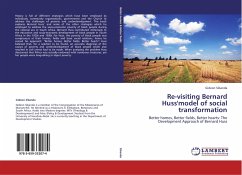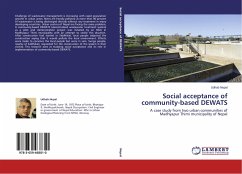History is full of different strategies which have been employed by individuals, community organisations, governments and the Church to address the challenges of poverty and underdevelopment. This book explores Bernard Huss and some of the other strategies which he employed to address the socio-economic poverty of black people during the colonial era in South Africa. Bernard Huss contributed immensely to the education and socio-economic development of black people in South Africa in the 1920s and 1930s. For Huss, the poverty of black people was conspicuous at their homes, fields and basic social relations, hence he coined his approach: Better homes, Better fields, Better hearts . Huss believed that, for a solution to be found, an accurate diagnosis of the causes of poverty and underdevelopment of black people which also resulted in civil unrest had to be made. When analysing the problem Huss discovered that Africa was actually endowed with numerous treasures, yet her people were languishing in abject poverty.
Bitte wählen Sie Ihr Anliegen aus.
Rechnungen
Retourenschein anfordern
Bestellstatus
Storno








